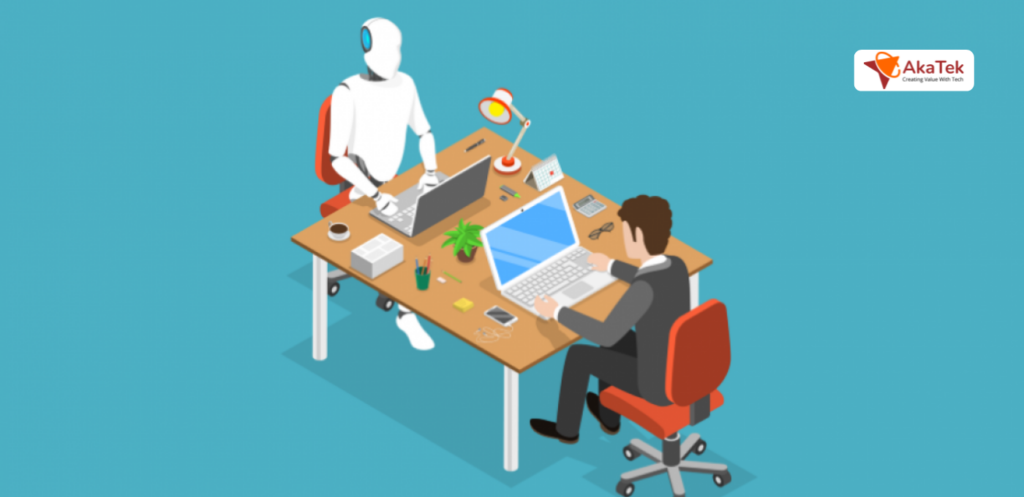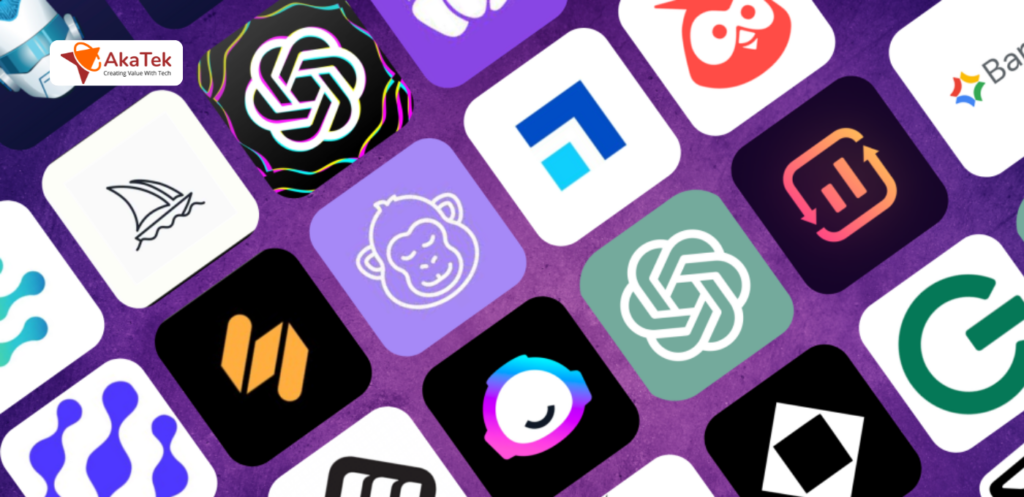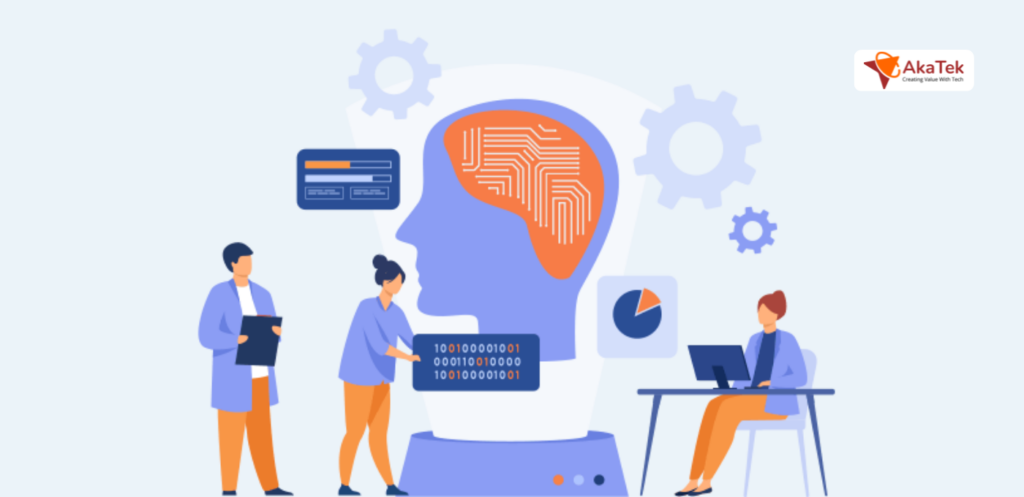
Is AI taking over?

Well, the answer is both yes – and no.
The yes? These days, certain professions find themselves standing center stage in the spotlight of automation. Imagine artists grappling with the encroachment of AI tools, pilfering their creative thunder. But, let’s be real, artists are just the opening act—customer service, legal eagles, and even the coding maestros are in the lineup. AI’s impact isn’t playing favorites; whether you wear a pristine white collar or embrace the ruggedness of blue, none of us are exempt from the looming shadow of automation.
The encroachment of automation is not uniform across industries: a striking 46% of tasks in administrative roles and 44% in legal professions are susceptible to automation. It’s not just penning cover letters and children’s books; it’s even been caught red-handed helping students cut corners on their essays.
Goldman Sachs isn’t shy about sounding the alarm, projecting that this generative AI maestro could jolt a whopping 300 million jobs worldwide—a real plot twist in the job market drama.
But before you summon your panic mode, here’s a plot twist of our own. The long-term employment doomsday? Unlikely.
Here comes our no.
AI commands its own expert squad—AI trainers and whisperers, guiding them to symphonic perfection. Automation isn’t a job thief; it’s a creator. Meet the robotics technician, the wizard ensuring the automated workforce stays in top shape. Data analysts? They’re the treasure hunters, extracting gold from the mountains of data.
But here’s the twist—mundane tasks get a robotic makeover, and we, the humans, step into the spotlight. Creativity, emotional intelligence, and critical thinking take center stage. Jobs aren’t lost; they evolve into something uniquely human.
The Rise of AI Roles
The job market is going crazy – with AI roles getting all the way in.
According to the US Bureau of Labor Statistics, careers in AI are not just on the rise—they’re projected to skyrocket by a jaw-dropping 21% from 2021 to 2031. But here’s the plot twist: AI isn’t here to swipe jobs away; it’s on a mission to turbocharge workplace efficiency and make our 9-to-5 lives a whole lot smarter, not necessarily harder.
What new rockstars are born out of this AI revolution:
- AI/Machine Learning maestros creating the future
- NLP scientists and Data Analysts uncovering digital gold
- And the Prompt Engineer shaping the language of tomorrow.
- We’ve got Project Managers steering the AI ship
- AI ethicists ensuring a fair play
- And even AI translators, because apparently, humans and AI need a good chat.

The skills required? Sure, you need coding and math chops.
But throw in a generous dose of creativity, critical thinking, and emotional intelligence, and you’ve got the winning formula. AI is a game-changing tool, but the real stars are the folks with their feet on the ground. Picture this: humans with turbocharged skills, a killer business model, and processes that seamlessly fuse humans with their AI sidekicks.
It’s not about robots taking over; it’s about humans and AI shaking hands and creating something downright extraordinary.
Preparing for an AI future – How we can adapt
Now we know that AI is not a threat; it’s rather our super-smart sidekick in the workplace.
The Robin to your Batman – that’s what AI is.
But where do we stand between this tech-fueled adventure? And how do we adapt?
We use AI in everything. Whether you’re crunching numbers, writing code, or unleashing your creativity, AI is your backstage pass to boosting productivity, no matter which industry is your battleground.
How do you perfectly use AI, without getting swept away? Fear not, because our next article is dropping soon, and we’re your guides to mastering the art of dominating AI tools. We’ll unravel the secrets, spill the digital tea, and show you how to make AI dance to your tune.


![AkaTek x [Client In Healthcare Industry]](https://akatek.vn/wp-content/uploads/2024/03/Article-Banner_AkaTek-x-Client-In-Healthcare-Industry-1024x497.png)
